Jasper Domanowski and Cosmo Hümmer conducted fieldwork in a Japanese school in Berlin to find out more about the role of school lunch and food education outside of Japan. Please read the report here:


Jasper Domanowski and Cosmo Hümmer conducted fieldwork in a Japanese school in Berlin to find out more about the role of school lunch and food education outside of Japan. Please read the report here:

Sarah Fäth, Richard Han, Aika Marcinkowski, Michelle Naumann and Philipp Perschke have produced a video about variations of the popular Japanese dish donburi in Berlin. They talked to two restaurant owners and present their findings on different types of donburi here:
Jonas John and Zihang Yu created a video on the certification of Japanese restaurants in Berlin.
Watch here and enjoy!
In a project on „Cool Japan“, two of our students created a flipbook comic, that explores how Japanese candy is connected to Japanese pop culture. Their goal was to trace the extent to which the efforts to promote the concept of „Cool Japan“ may or may not have impacted the sweetscapes in Berlin. To do this, they have selected stores to interview owners and managers about how they choose and market the products they sell. Furthermore, they talked with customers of these stores about why they buy these candies.
Flipbook Link: https://heyzine.com/flip-book/c398d9c9b3.html
Dieses Jahr hat eine Gruppe unserer Studierenden in der Forschungswerkstatt ein Video zu Izakaya in Berlin gedreht. Darin schildern sie ihre Eindrücke und Erkenntnisse über die Besonderheiten eines Izakaya, die sie aus Interviews und Beobachtungen gewonnen haben. Viel Spaß beim Ansehen!
Prof. Dr. Cornelia Reiher published a new paper in Berliner Blätter 86/2022 on the experience of Japanese restaurateurs in Berlin during the shutdown from March to May 2020 following the outbreak of COVID-19 in Berlin. It asks whether and how they continued selling food during the shutdown, compares their experiences and points out similarities and differences that are based on the type of eateries, the restaurateurs’ personal migration histories and the degree of their local embeddedness in Berlin
Website: https://www.berliner-blaetter.de/index.php/blaetter/article/view/1112/57
Recently, the number of Covid-19 infections in Berlin has dropped significantly and more and more people are getting vaccinated. After more than five months, restaurants in Berlin reopened their open air seating for guests with a negative corona test result no older than 24 hours. From June 4, customers without a test can use the outdoor dining facilities and indoor dining will reopen for tested and vaccinated customers. The beautiful weather will guarantee crowded beer gardens and cafés.
Since last spring, we have interviewed Japanese restaurateurs, chefs and food workers in Berlin to ask them about their experiences during the two lockdowns since March 2020. This week I had the chance to talk to Chie who is a pastry chef. She moved to Berlin in 2012 and since then has worked in different Japanese restaurants were she was mostly responsible for desserts and pastry. She creates matcha tiramisu, mochi and other delicious sweets. For several years, she has been working in an Italien pastry shop and also continued her work for Japanese restaurants and catering activities.
Throughout the pandemic, the pastry shop Chie works for remained open for takeout. In Summer 2020 and before the second lockdown that began in November, they also received some catering orders again. Chie worked reduced hours, but didn’t experience great financial loss due to Kurzarbeitergeld (short-term work allowance) and a generous boss. She said she didn’t need much money during the pandemic, because she usually spends it on travel and dining out. Both was impossible during the last year.
One thing Chie is looking forward to when restaurants reopen is to create Japanese desserts again for Japanese restaurants. Although many Japanese restaurants offered takeout services during the pandemic, they didn’t sell desserts to go. Remembering Chie’s great desserts and pastries sold in Japanese restaurants in the past, we can’t wait for the full reopening of Japanese restaurants in Berlin and to enjoy yuzu tiramisu again!

Chie during our online interview and two of her creations: matcha roll and yuzu tiramisu
The sixth season of the participatory research project/method course „Berlin’s Japanese foodscapes” is on and taught in English for the first time. In summer 2021, 10 students from FUB’s Japanese Studies MA program will conduct new and exciting projects on Japanese food in Berlin to get some experience with qualitative research methods. Due to the ongoing Covid-19 pandemic, there will be methodological challenges to face, but just like last year, we will be flexible and find alternative ways to make our data.
In order to get interview praxis, we collaborate with Yoko Kawamura and her students from Seikei University in Tokyo. FUB’s students will interview Seikei students online about their lives, experiences and food consumption during the pandemic and ask them about the situation of restaurants in Tokyo. After this first Japanese language interview experience, we will prepare for interviews with Japanese food entrepreneurs and food workers in Berlin.
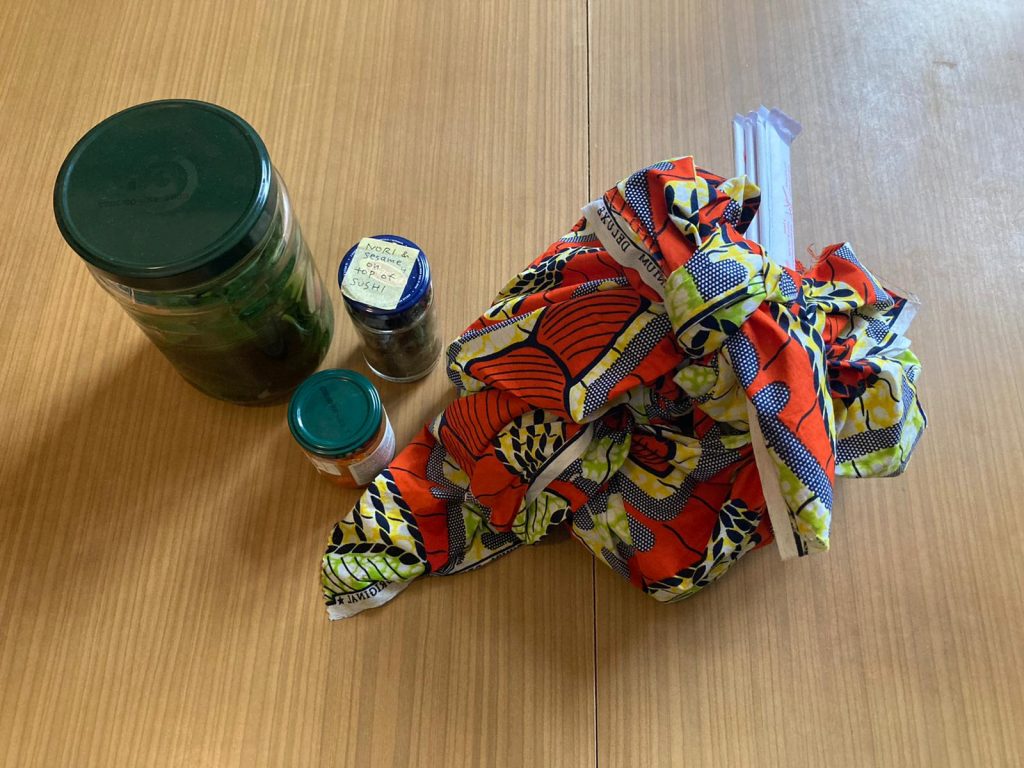
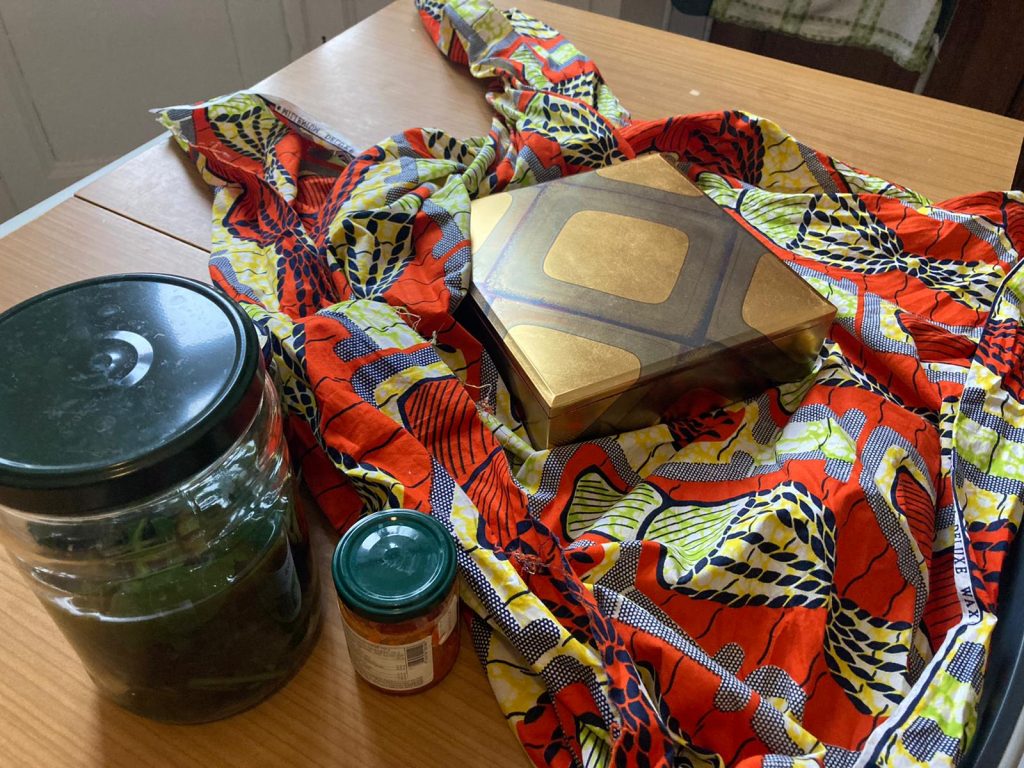
During the Covid pandemic, many Japanese restaurants in Berlin offer delivery and take-out services. It is a nice change to the monotonous every-day life to unwrap a furoshiki and find …
Students have already formed small research teams and decided on topics to study. One project will inquire food labeling of imported Japanese food in Asian supermarkets in Berlin. Another project analyzes how Japanese restaurant owners think about Covid-19 regulations in Berlin. The third project will compare concepts of authenticity in Japanese restaurants run by food entrepreneurs with different nationalities and/or ethnic backgrounds. We are looking forward to interesting insights into Berlin’s Japanese foodscapes, exciting interviews and hopefully joint visits to restaurants once they reopen. Meanwhile we order Japanese food via delivery or make use of take-out services many Japanese restaurants in Berlin offer in order to remember the taste of Japanese food.
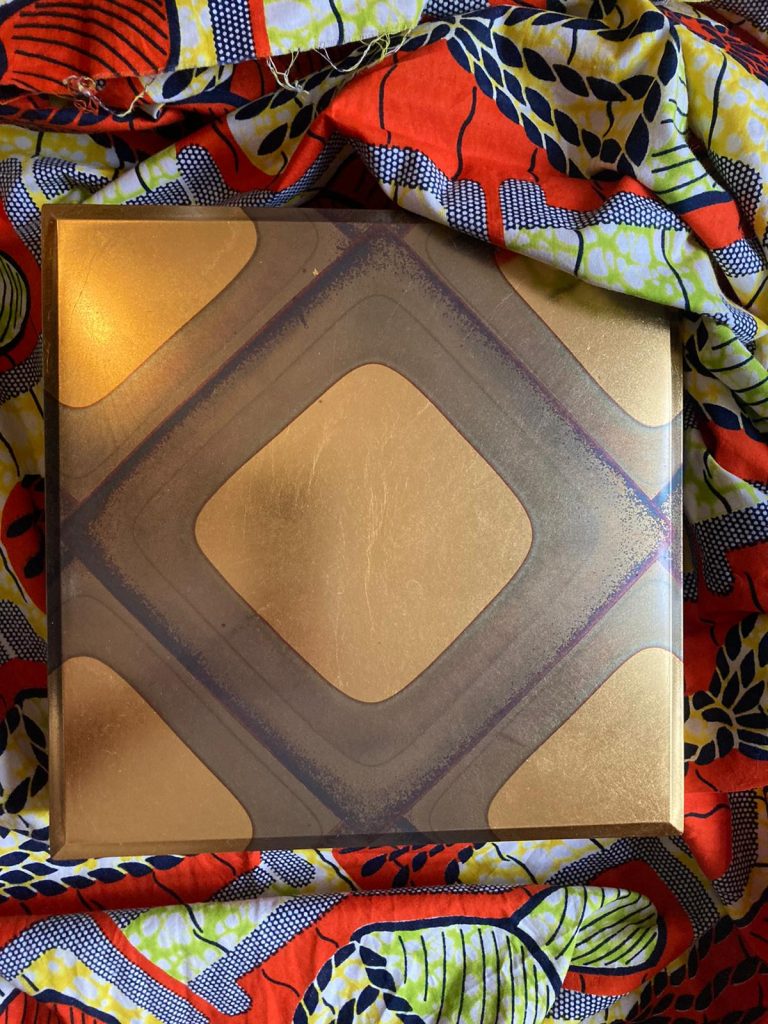
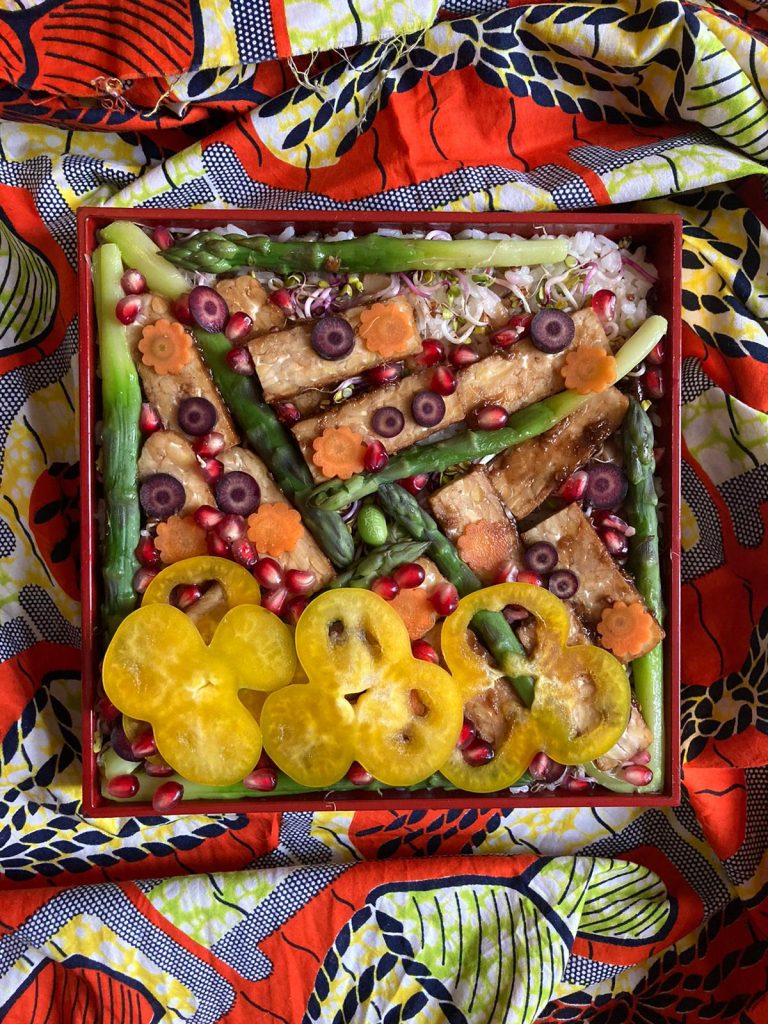
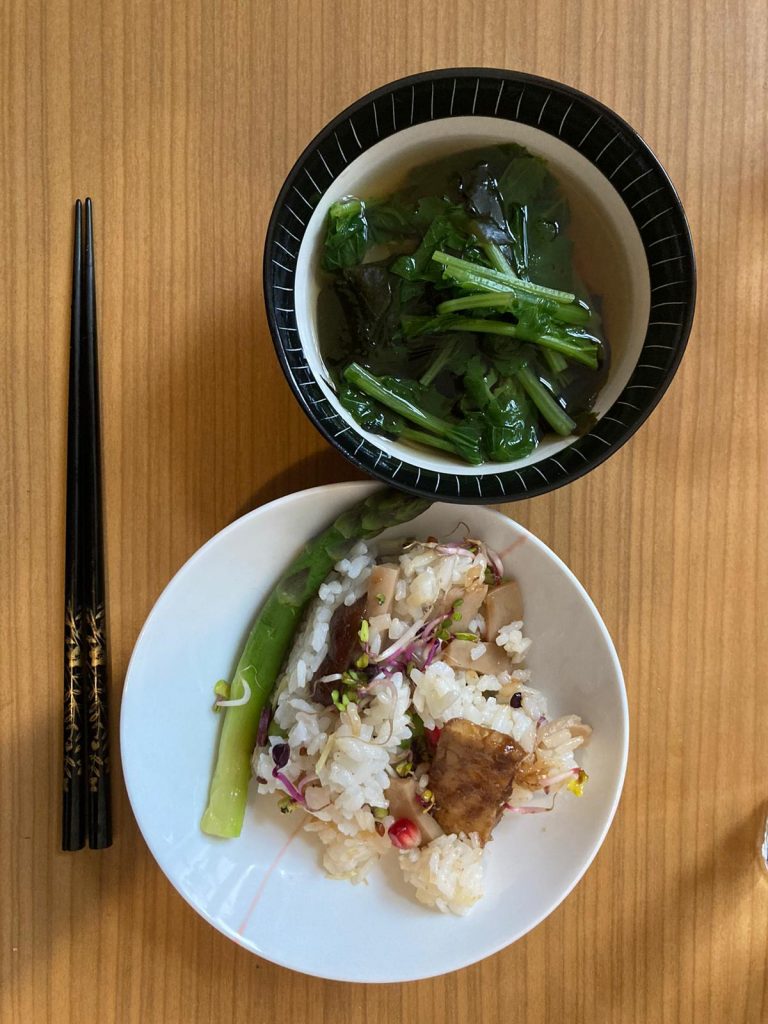
… a beautiful box filled with vegan chirashi sushi. This one was prepared by Akiko, we have interviewed last year (https://roku-berlin.com/).
Als im März 2020 alle Restaurants während des ersten Corona-Lockdowns schließen mussten, hätte niemand geahnt, dass sich diese Situation ein Jahr später fortsetzen würde. Nach einer kurzen Erholungspause im Sommer 2020, in der Restaurants wieder geöffnet waren, sind die Berliner Restaurants nunmehr seit November 2020 geschlossen. Lediglich Lieferdienste und Selbstabholung sind möglich. Die Novemberhilfen wurden schleppend ausgezahlt und viele Restaurants stehen vor dem Aus.
Dies betrifft natürlich auch die japanischen Restaurants. Von den ca. 290 japanischen Restaurants und Cafés in Berlin (eigene Zählung November 2020) boten Ende November 2020 fast 200 Restaurants Lieferdienste und/oder die Möglichkeit zur Selbstabholung an. Die restlichen Restaurants hatten geschlossen bzw. stellten online keine Informationen zur Verfügung. In den vergangenen fünf Monaten haben jedoch einige Restaurants zusätzlich auf Lieferdienst und/oder Abholservice umgestellt oder dauerhaft geschlossen. Einige Restaurants, die im ersten Lockdown im Frühjahr 2020 zu waren, haben wiederum in der Zwischenzeit einen Abholservice eingerichtet. Mitunter bieten sie diesen aber nur an einigen Tagen in der Woche an. Viele japanische Restaurants haben sich auf obentō spezialisiert, da man die japanischen Lunchboxen gut mitnehmen und aufwärmen kann.

Mitteilung über Außerhausverkauf an einem japanischen Restaurant im März 2021
In dieser ungewissen Situation beginnt das neue und dritte Onlinesemester an der FU Berlin. Die Forschungswerkstatt wird sich daher ab April 2021 wieder intensiv der Situation der japanischen Restaurants, ihrer Betreiber, Köche und Mitarbeiter*innen widmen. Ob wir im Sommersemester Gelegenheit haben, japanisch essen zu gehen und unsere Interviewpartner*innen persönlich zu treffen, ist jedoch noch ungewiss.

Hygienemaßnahmen in einem japanischen Café in Berlin
Die Ergebnisse der Forschungswerkstatt „Japanische Küche in Berlin“ des Sommersemesters 2020 sind da. Trotz erschwerter Bedingungen während der Covid-19 Epidemie, haben die Studierenden Feldforschung in Berlin durchgeführt. Dabei ist ein spannendes Video über Soba und Udon in Berlin entstanden. In zwei Interviews berichten ein deutscher Koch und eine japanische Köchin die Soba und Udon für Berliner Kunden zubereiten über ihr Verständnis von japanischer Küche, die Bedeutung von Soba und Udon und deren Zubereitung. Neben interessanten Interviewausschnitten, die spannende Einblicke in Berlins japanische Gastronomie geben, besticht der Film durch ästhetisch ansprechende Bilder. Viel Spaß beim Ansehen!